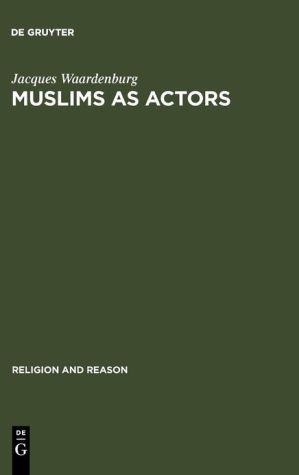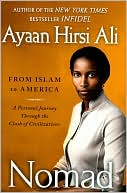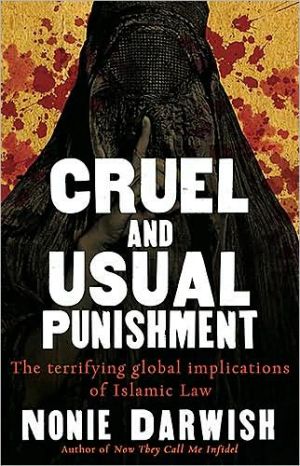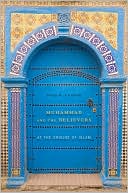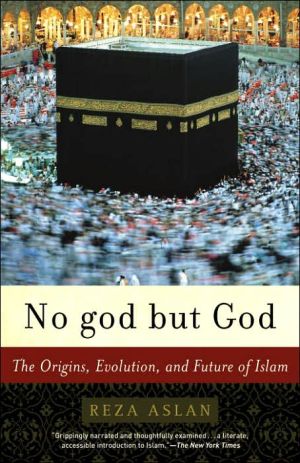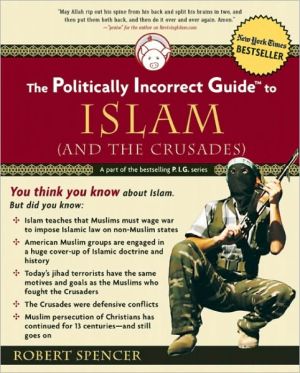Muslims as Actors: Islamic Meanings and Muslim Interpretations in the Perspective of the Study of Religions
This book challenges the view of Islamic Studies as a branch of "Orientalism". The West now sees Islam largely as a political problem, and research on its religious aspects is urgently needed. The book traces the relevance of the academic study of religion for Islamic Studies, contributions of prominent scholars, and studies on issues of contemporary Islam. The author advocates focusing research on Muslim interpretations of Islam which redefine Islamic values and meanings in present-day...
Search in google:
Preface VIntroduction 1Some Biographical Notes 1The Present Book 17Some Perspectives 20Selected Literature 21Two QuestionsCan the Science of Religion Render Service to the Study of Islam? 25Islamic Studies in Context 25Studying Islam as a Religion 27The Science of Religion Contributing to the Study of Islam 29The Term "Islam" 29Objective and Subjective Meanings 30Statements on Islam Studied as Interpretations of Islam 31Ways of Interpreting and Constructing Islam 32Islam Viewed as the Order of Creation 33Islam Studied as an Interpretative System that is itself Continuously Interpreted 34Studying Constructions of Islam 34Variety of Constructions 35Claims of Universality 35Cultural Heyday of Islam 36Islam under Construction 36Selected Literature: The Study of Religions 37Can We Study Islam as a Signification System? 40Introduction 40The Concept of a Signification System 41Subjective Meanings 42Interest in Meanings 45Islam Studied as a Signification System 46The Proposed Approach Summarized 48Selected Literature: Islamic Studies 50Issues in Islamic StudiesIslamic Studies and the Study of Religions and Cultures 55Introduction 55Islamic Studies and the Historical Study of Religions 58Islamic Studies and the Comparative Study of Religious Data 62Islamic Studies and Discussions on Method and Theory in the Study of Religions 66Studying Religious Aspects of Islam 70Some Basic Distinctions 72The Study of "Religion" in Islamic Studies 74The Role of Religion in Muslim Societies 79The Role of Religion in Inspiring Muslim Spirituality 80Conclusion 81Selected Literature 82Some Social Scientific Orientations in Islamic Studies 86Introduction 86The Humanities 88The Social Sciences 90Social Scientific Research on Muslim Societies since World War II 92Anthropology 93Sociology 95Political Science 97A Plea for Impartial Research on Religion and Politics 97Contributions of the Social Sciences to Islamic Studies 99Theoretical Contributions 99Empirical Contributions 101Representing Islam as a Religion 103Conclusion 104Selected Literature 106Islamic Studies and Intercultural Relations 108Introduction 108Some Contexts of Islamic Studies Before 1950 109Rapid Survey of Historical Contexts 110Politics 112Religion 113Education 115Islamic Studies in Context 116Islamic Studies 116Modern Trends in Islam 117Muslim Apologetics and Criticism of Islamic Studies 119Muslims in the West 122Islam in the West 122Muslims in Colonial Societies 123Muslims in Western Societies 124Differentiation in Islamic Studies 125Academic Islamic Studies 125Muslim "Study of Islam" 128Conclusion 131Personal Reflections on an Anti-Cultural World 134Selected Literature 136Intercultural Relations and Islam 136Muslim Discovery of Europe 137Muslims in Europe and North America 137The Muslim World and the Western World 139Presuppositions and Assumptions in Islamic Studies 141Introduction 141Presuppositions and Assumptions 141Presuppositions 143Assumptions 145Islamic Studies 147Presuppositions and Assumptions in Islamic Studies 148Selected Literature 151General Approaches and Methods 151Interpretative Approaches 153The Practice of Islamic Studies in HistoryMassignon as a Student of Islam (1883-1962) 157Louis Massignon. Life and Work 158Spirituality 159Research 159Politics 161Legacy 163Research on Islam as a Religion 163Al-Hallaj 164Islam 165Dedication 166Impact on Islamic Studies 168Immediate Influences 168Impact on Islamic Studies 171Three Groups of Followers 171Catholic Orientalists 171Muslim Intellectuals 174Arab Christians 175A Scholar's Mind 176Conclusion 179Selected Literature 182Bio-bibliography 182Scholarly Publications 183More Personal Writings 185Main Publications about Louis Massignon 185Some Developments and Trends in Islamic Studies Since 1950 189Looking Back on Islamic Studies 189The Study of Early Islamic History 193Studying Muhammad in his Society 193The Qur'an Studied as Text 194Hadith Studies 197The Medinan Period 198Islamic Thought and Spirituality 198Historical Encounters between Islam and Other Civilizations and Religions 200Observing Islamic Studies 202Studying Muslim Societies 202Scholarly Procedures 204Islamic Studies: Changes 206Changes in Perspective and New Orientations of Study 206Looking Forward in Islamic Studies 208Scholars of Islamic Studies 210Contexts of Islamic Studies 211Selected Literature: Some Subjects of Research Since 1950 213History of Islamic Studies as a Field 213Early Islamic History 214The Rise of Islam 214Muhammad 215Qur'anic Studies 215Hadith Studies 216Early History and Historiography 216Islamic Thought and Spirituality 217Medieval and Later 217Contemporary 218Encounters with Other Civilizations 218Encounters with the West and Christianity 218Encounters with Other Cultures and Religions than the Western Ones 219Recent Scholarly Presentations of Islam 221Introduction 221Wilfred Cantwell Smith: Conceptualization in Islam and in Islamic Studies 223Gustave E. von Grunebaum: Islam as Medieval Culture 229Annemarie Schimmel: Islam as Deciphering the Signs 231Seyyed Hossein Nasr: Islam as "Traditional" Islam 235Mohammed Arkoun: Rethinking Islam 243Conclusion 249Selected Literature: Bibliography, Books on Islam, Articles, Discussion and Research 251Arkoun, Mohammed 251Grunebaum, Gustave E. von 253Nasr, Seyyed Hossein 256Schimmel, Annemarie 257Smith, Wilfred Cantwell 259Islamic and Religious Studies under the Conditions of the Cold War 262Conflicts and Ideological Distortions 262Two Opposing Views of Islam 263The USSR 264The West 266Islamic Studies 267Some Corrections Imposed on Distorted Views of Islam 268A Visit to the USSR 271The Study of Religions in East and West 275Conclusion 279Selected Literature 280Studying ReligionsReligions as a Subject of Empirical Research 285Issues of Research at the Beginning 285The Attraction of a Science of Religion 287Some Western Views and Constructs of the Study of Religion 288Empirical Research into Religion 289Schemes of Interpretation of Religion 290Religion as an (Un)known Subject of Study 291Development of Theoretical Thinking 292Explanatory Theory 293Hermeneutic Orientations 294Conclusion 295Selected Literature 297History of the Field 297Some Questions of Method and Theory 300Classical Phenomenology of Religion in the Netherlands 1920-1950 302The Problem 303Image Formation of Religions Before the Phenomenological Movement 305Image Formation in Classical Phenomenology of Religion 307Image Formation of Particular Religions Among Dutch Phenomenologists 309The Presentation of Religion in Dutch Classical Phenomenology of Religion 312Classical Phenomenology of Religion and the Emancipation of 'Religionswissenschaft' 314Classical Phenomenology of Religion: Aims and Results 316The Context of the Phenomenology of Religion in the Netherlands 1918-1939 321G. van der Leeuw's Conceptualization of Religion 323Conclusion 324Selected Literature 325Eliade as a Student of Religion (1907-1986) 331Mircea Eliade. Life and Work 331Biographical data 331Eliade Studying Religion 335The Study of Religions. Construct and Reality 338The Study of Religions up to Eliade 339Some Critical Remarks on Eliade's Approach 341Conceptualizing Religion after Eliade 342Eliade's Time and Ours 345Selected Literature 349Bio-bibliography 349Main Publications in English, with Years of their First Appearance 350Some Monographs about Eliade 352Some Collective Works about Eliade 353Some Articles about Eliade 354Some Contexts of Eliade's Work 355Muslims and Their IslamBelievers in Focus. Exploring Muslim Life 359Believers as Potential Actors 359A Philosophical Intermezzo. Meaning and Significance 362Significance and Subjective Meanings 365Research on Subjective Meanings 368Toward Understanding Subjective Meanings. Intentions 370Conclusion 372Selected Literature 373Muslim Life 373Islam in Literature 374Ethics, Justice, and Human Rights in Islam 374Encounters Between Believers 375Believers' Identities 376Religion in the World 376Islamic Reform and Renewal. Recourse to Scripture 377Introduction 377Kinds of Reform and Forces Opposing It 378The Term "Reform": Three Meanings 378Three Kinds of Movements of Reform 379Religions Developed from Reform Movements 381Social Reforms and Religion 383Forces Opposing Reform 384Islamic Reform and the Shari`a 386Studying Reformers and Reform 388Reflecting on the Notion of Reform 390A Note on Reading Scriptures 392Religious Readings 392Literary and Historical Interpretations 393Common Structures of the Scriptural Religions 395Common Structures Around the Scriptures 396Reform Movements and their Reading of Scripture 397Selected Literature 398Initiatives to Reform and Renewal in Islam Before 1970 398Present-Day Thinking on Renewal of Islam 399Reinterpretations of Islam in Terms of Reform 401Islamic Resurgence and Politics 402Islam in/and the West 403Worldwide Islam 404Ideas and Developments in Contemporary Islam 405Situation and Future of Women 406Situation and Role of Religious Authorities 407Some Subjects of Current debate 407A Note on Reading Scriptures 408Scripture in general 408Scriptures in Judaism, Christianity and Islam 408Scripture in Islam 409New Kinds of Muslim Qur'an Exegesis, Reading, and Interpretation 409Some Studies about New Kinds of Muslim Qur'an Interpretation 410Further Reading (Bibliography)Middle Eastern Responses to Islamic Studies. The Orientalism Debate 413Religion(s) and the Study of Religion(s) 421The Concept of Religion 421Discussions around a Science of Religion. Method and Explanatory Theory 422Anthropology of Religion 431Comparative-Historical Research 433Sociology and Psychology of Religion 436Interpretative Studies of Religion 436The Phenomenology Debate 436Scholarly Hermeneutic Orientations 441Some Comprehensive Reflections 446Gender and the Study of Religion 447Gender and Religion in General 447Gender and Islam 449The Study of Religion(s) in Various Countries 451Islamic Studies in Various Countries 456IndexesIndex of Persons 460Index of Subjects 463Index of Concepts (Problem-Oriented) 468
